2015 Lectures |
Lunch: 12:00 noon
Lecture: 12:15 - 1:20 pm
Hudson Webber Cancer Research Center, Second Floor, Wertz Auditorium
4100 John R. Street, Detroit, MI 48201
Immune impact on atherosclerosis
by T cells, DCs and ILCs
Professor of Pathology
Brigham and Women's Hospital
Harvard Medical School
Host: Harley Tse, Ph.D.
Departments of Immunology and Microbiology
Wayne State University
Lunch with graduate students, postdoctoral fellows and residents: 1:20 - 2:30 pm
-
 Speaker Profile Speaker Profile
Dr. Lichtman is a leading expert in T lymphocyte biology. He is credited with defining multiple key molecular mechanisms controlling the differentiation and migration of effector T cell subsets into tissues during inflammation. Recent efforts in his lab have elucidated the impact of T cell costimulatory and regulatory pathways on atherosclerosis and myocarditis, and mechanisms of tolerizing T cells specific for cardiovascular antigens.
Dr. Lichtman is also well-known for the textbook Cellular and Molecular Immunology that he coauthors with Abul Abbas and Shiv Pillai, which has educated an entire generation of immunologists throughout the world.
|
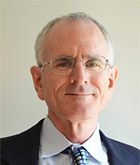
|
Lunch: 12:00 noon
Lecture: 12:15 - 1:20 pm
Hudson Webber Cancer Research Center, Second Floor, Wertz Auditorium
4100 John R. Street, Detroit, MI 48201
And Now for the Hard Part:
Understanding the Conspiracy of Autoimmunity Risk Alleles
That Regulate Signaling Pathways
Distinguished Professor & Chairman
Department of Immunology & Microbiology
University of Colorado School of Medicine
Host: Allen Rosenspire, Ph.D.
Departments of Immunology and Microbiology
Institute of Environmental Health and Science,
Wayne State University
Lunch with graduate students, postdoctoral fellows and residents: 1:20 - 2:30 pm
-
 Speaker Profile Speaker Profile
Dr. Cambier is a leader in styding immune cell signaling that underlies immune defense and autoimmunity. He is well-known for his original characterization of the structure and function of transmembrane signal transduction of CD79a/b components of the B cell antigen receptors, and seminal discovery of the role of phosphotyrosine (SHP-1) and phosphoinosotide (SHIP-1) phosphatases in feedback and active inhibitory FcR-mediated signaling. More recent studies focus in molecular signaling pathways that maintain B cell anergy, and how they are defeated in development of autoimmunity. His laboratory was also the first to clone and characterize the function of STING, a key molecular in the transduction of intracellular innate immune signals.
|
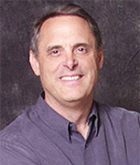
|
Lunch: 12:00 noon
Lecture: 12:15 - 1:20 pm
Hudson Webber Cancer Research Center, First Floor, Wertz Classroom
4100 John R. Street, Detroit, MI 48201
Targeted Coating with Antigenic Peptide Renders Tumor Cells Susceptible to
CD8+ T-Cell-Mediated Killing
Professor of Pathology, Obstetrics and Gynecology, Oncology
Johns Hopkins University School of Medicine
Host: Wei-Zen Wei, Ph.D.
Departments of Oncology, Wayne State University
Barbara Ann Karmanos Cancer Insitute
Lunch with graduate students, postdoctoral fellows and residents: 1:20 - 2:30 pm
-
 Speaker Profile Speaker Profile
Dr. Hung is an expert in molecular biology, gene therapy and molecular immunology. His research focuses on the development of vaccines to target human papillomavirus–related cervical cancer. Through innovative ideas and remarkable skill, his research has yielded promising results. His team has shown strong evidence that cancer vaccines can inhibit tumor development and recurrence in preclinical models. The impressive results from his preclinical studies have led to several ongoing clinical trials for HPV-associated precancerous and cancerous lesions.
Dr. Hung has published over 150 peer-reviewed publications in leading journals, including Cancer Research, Journal of Clinical Investigation, Molecular Therapy, Journal of Immunology, and Proceedings of the National Academy of Sciences. He has also contributed to many invited reviews, editorials and book chapters on HPV molecular biology, molecular pathology, and vaccine development. In addition, Dr. Hung is a co-inventor on 8 filed reports of invention and patents. Two of them have been licensed and are under active development by biotechnology companies.
Recently, Dr. Hung has been focusing on developing innovative immunotherapeutic strategies against ovarian cancer. The efficacy of immunotherapies and vaccines against ovarian cancer are often compromised by pre-existing immune tolerance against endogenous antigens. To this end, Dr. Hung has been developing therapeutic agent that are capable of coating foreign antigenic peptide onto ovarian tumor cells, which render the tumor cells susceptible to killing by foreign antigen-specific CD8+ T cells. Dr. Hung's novel technologies have important implications in circumventing immune tolerance to enhance cancer immunotherapies.
|
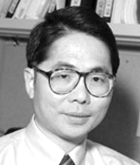
|
Lunch: 12:00 noon
Lecture: 12:15 - 1:20 pm
Hudson Webber Cancer Research Center, Second Floor, Wertz Auditorium
4100 John R. Street, Detroit, MI 48201
T Cell Surveillance of Inflamed and Infected T issues
Dean's Associate Professor of Immunology and Microbiology
David H. Smith Center for Vaccine Biology and Immunology
Department of Microbiology and Immunology
University of Rochester Medical Center
Host: Qing-Sheng Mi, M.D., Ph.D.
Departments of Medicine and Dermatology, Henry Ford Health Systems
Lunch with graduate students, postdoctoral fellows and residents: 1:20 - 2:30 pm
-
 Speaker Profile Speaker Profile
Dr. Fowell was trained in immunology at Oxford and UCSF. Her group now at the University of Rochester studies how the acquisition and execution of CD4+ T cell effector function are tightly regulated and spatially compartmentalized. Specifically, her research focuses on mechanisms of immune regulation at tissue sites of inflammation, because once CD4+ T cells leave the lymph node (inductive site), their physical and functional fate in effective tissues where they carry out function is less well understood. Her studies with the protozoa Leishmania major suggest that this centrally lymph node-generated effector repertoire can be further edited at the infected tissue site. Cytokine production in the inflamed tissue can be modulated at a number of levels including chemokine-driven differential recruitment of effector cells, the provision of signals for effector cell function and suppression by regulatory T cells (Tregs). The concept that tissue resident pathogens may subvert the centrally generated cytokine repertoire has important therapeutic implications. Novel therapies that focus on manipulating the local infection site to encourage appropriate recruitment or activation of effectors may be particularly beneficial.
Dr. Fowell is the recipient of many prestigious awards, including Mary Jane Kugel Award from the Juvenile Diabetes Research Foundation, the Howard Hughes Medical Institute (HHMI) Junior Faculty Start-up Award, Discovery Concept Fund from Johnson and Johnson, was the 2000 Pew Scholars nominee from the University of Rochester.
|
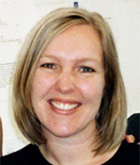
|
Lunch: 12:00 noon
Lecture: 12:15 - 1:20 pm
Hudson Webber Cancer Research Center, Second Floor, Wertz Auditorium
4100 John R. Street, Detroit, MI 48201
Role of ThPOK in T Cell Development and Lymphoma
Professor of Immunology
Co-Leader, Keystone Program in Blood Cell Development and Cancer
Fox Chase Cancer Center
Host: Qing-Sheng Mi, M.D., Ph.D.
Departments of Medicine and Dermatology, Henry Ford Health Systems
Lunch with graduate students, postdoctoral fellows and residents: 1:30 - 2:30 pm
-
 Speaker Profile Speaker Profile
Dr. Kappes is an expert in T lymphocyte development and signal transduction. His group has developed mouse models with specific defects of the T lymphoid lineage, including an induced mutant lacking the CD3δ component of the TCR signalling complex, which is blocked in positive selection of αβ T lineage cells, a spontaneous mutant line carrying an autosomal recessive mutation which blocks the generation of CD4+ but not CD8+ T cells.
He has authored many articles in leading journals including Annual Reviews of Immunology, Nature, Nature Immunology, Immunity, PNAS, and Journal of Experimental Medicine, and serves in NIH study sections.
|
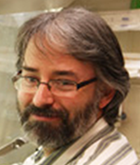
|
Lunch: 12:00 noon
Lecture: 12:15 - 1:30 pm
Hudson Webber Cancer Research Center, Second Floor, Wertz Auditorium
4100 John R. Street, Detroit, MI 48201
Why Immune Checkpoint Blockade Is Transformational in Cancer Therapy?
Weifeng Xu, Ph.D.
Research Investigator
Bristol-Myers Squibb
Host: Kang Chen, Ph.D.
Departments of Obstetrics and Gynecology, Wayne State University
Perinatology Research Branch, NICHD, NIH
Dialog with graduate students, postdoctoral fellows and residents: 1:30 - 2:30 pm
Working and Excelling in the Biopharmaceutical Industry
-
 Speaker Profile Speaker Profile
Dr. Xu's expertise spans basic and translational immunology. He has made important contributions to the fields of B cell biology and antibody-based immunotherapy. At Weill Cornell Medical College and later as a faculty member at Mount Sinai School of Medicine, he discovered the function of epithelial cells in mucosal antibody regulation (Xu et al., Nature Immunology 8:294, 2007), the immunological signal for human IgA2 class switching and production (He and Xu et al., Immunity 6:812, 2007) and the mechanism of humoral immune evasion by HIV-1 (Xu et al., Nature Immunology 10:1008, 2009).
In 2011, Dr. Xu was recruited to Bristol-Myers Squibb as the first scientist to direct the development of cell-based neutralizing antibody assays, which is critical to determine whether the antibodies developed by patients administered with clinically used drugs may neutralize and reduce drug efficacy. He has developed and validated multiple cell-based neutralizing antibody assays for some of the most important pipeline antibody drugs at Bristol-Myers Squibb, among which are Yervoy (Ipilimumab, anti-CTLA-4) and Opdivo (Nivolumab, anti-PD-1), both have been approved by FDA and dominate the current immunoregulatory cancer therapy market.
|
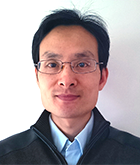
|
Lunch: 12:00 noon
Lecture: 12:15 - 1:30 pm
Hudson Webber Cancer Research Center, Second Floor, Wertz Auditorium
4100 John R. Street, Detroit, MI 48201
mTOR Signaling and Metabolic Control of T Cell Biology
Professor of Immunology
St. Jude Children's Research Hospital
Host: Qing-Sheng Mi, M.D., Ph.D.
Departments of Medicine and Dermatology, Henry Ford Health Systems
-
 Speaker Profile Speaker Profile
Dr. Chi has been a leader in the study of metabolic regulation of immune responses. His research group aims at understanding the mechanisms of immune signaling and cell metabolism that control the differentiation and function of T cells, a central cell type in adaptive immunity. He has used a combination of approaches including mouse genetics, cellular immunology and biochemistry, as well as models of autoimmune, infectious and malignant diseases (e.g. multiple sclerosis, colitis, listeriosis and leukemia).
Within the underlying theme of his research, he has explored T cell responses from two complementary angles: the molecular pathways intrinsic to T cells, and the pathways that act in dendritic cells to cross-regulate T cell responses. For T cell-intrinsic mechanisms, he has been particularly interested in mTOR signaling and metabolic pathways that control the differentiation and function of regulatory and effector T cells (Shrestha, Nature Immunology 2015; Zeng, Nature 2013; Yang, Immunity 2013; Yang, Nature Immunology 2011; Shi, Journal of Experimental Medicine 2011). For dendritic cell-mediated extrinsic control of T cell differentiation, he has focused on MAPK, mTOR and related pathways (Huang, Nature Immunology2012; Huang, Immunity 2011).
Significant insight into the physiological roles of signaling and metabolic pathways could impact the understanding of fundamental mechanisms of immune regulation and manifest legitimate therapeutic opportunities.
|
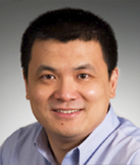
|
Lunch: 12:00 noon
Lecture: 12:15 - 1:30 pm
Hudson Webber Cancer Research Center, Second Floor, Wertz Auditorium
4100 John R. Street, Detroit, MI 48201
PKC-θ Shifts the Balance between Inflammatory and Regulatory T Cells
Professor of Immunology
Beckman Research Institute
City of Hope
Host: Li Zhou, M.D., Ph.D.
Departments of Medicine and Dermatology, Henry Ford Health Systems
Trainee meeting with the speaker for lunch: 1:30 - 2:30 pm
-
 Speaker Profile Speaker Profile
Dr. Zuoming Sun's lab have made a series of major contributions to the mechanisms controlling T cell development, activation and survival.
They have demonstrated that the transcription factor RORγ plays a critical role in the apoptotic elimination of thymocytes during T cell negative selection in the thymus. They have also discovered that β-catenin pathway mediates the critical survival signals for thymocytes as well as responsible for up-regulating a critical molecule, CD4, on thymocytes. Recently, they have identified the function of PKC-θ in eliminating T cells via activation-induced cell death. We are currently studying the function of PKC-θ in T cell-mediated rejection of allografts. Their results demonstrated that PKC-θ is required to mediate the immune responses for allograft rejection. Therefore, PKC-θ is a potential drug target for preventing allograft rejection. Currently, they are elucidating the molecular mechanisms responsible for PKC-θ-regulated T cell functions.
Dr. Sun serves as the editor and reviewer of many leading journals in the field of immunology, and also serves in the NIH study sections.
|
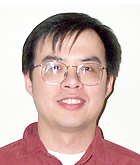
|









 Speaker Profile
Speaker Profile